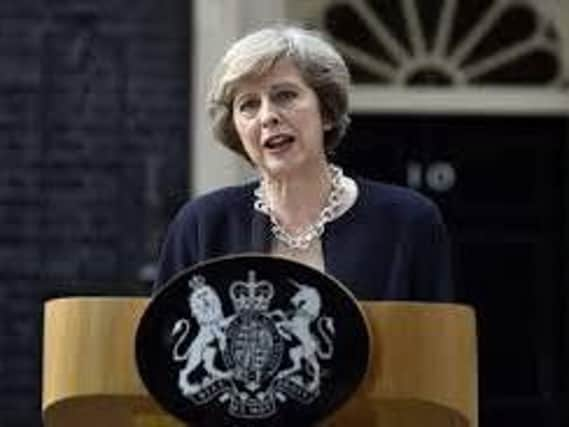Bad news ahead for Brenda from Bristol


With the less than certain outcome of the UK election, and with Theresa May not obtaining the thumping majority that she had hoped for, we could be in for some turbulence in the financial markets in the days and weeks ahead. Strong and stable is certainly not a phrase I would use for the markets any more than the existing Government!
In fact, with the Conservatives not even obtaining a majority, this could well be an annus horribilis for the Tories, especially as Brexit negotiations begin. Firstly, it will make it very hard for them to vote through any Brexit related legislation, and the bad news for Brenda is that there could well be another election within the next year if Parliament cannot operate under the rather dubious pact between the Conservatives and the DUP. On the other hand, I can’t see the Conservatives willing to go to the polls again, and it is for this reason Theresa May can be confident of keeping her job (for the time being).
Advertisement
Hide AdAdvertisement
Hide AdAs expected, sterling has fallen slightly since the election, albeit not as much as some people feared, but this does tend to have a positive impact on markets – it could however fall further. On the down side, if you are heading away to the continent this summer it will be more expensive. Additionally, this result will do nothing to combat rising inflation as the UK is a net importer of goods.
In other news, UK Interest rates remain unchanged at 0.25 per cent which to the untrained eye is no news at all. However, even though the baseline rate remained unchanged at 0.25 per cent, the announcement that three members out of the eight in the Bank of England’s (BOE) Monetary Policy Committee voted for a rate increase did shock the market. Previously only one member had been voting for a rate increase. In fact, this has been the closest the bank has come to raising interest rates since
2007.
It did lead to a brief recovery rally for sterling, which subsequently led the FTSE 100 to shed some of its value on the day of the announcement.
This reads as a sign that some members of the committee are concerned about rising levels of inflation, which earlier in the week had reported a rise from 2.7 per cent up to 2.9 per cent. This was much higher than many economists had forecast. If inflation continues to rise rapidly then we could see interest rates rise sooner than expected, although in my opinion I do not see this as being a particularly good countermeasure. To increase the cost of borrowing during a very precarious time for the UK economy could do more harm than good, especially when last Friday the Office for National Statistics reported the weakest annual growth since April 2013 for retail sales - growth was just 0.9 per cent.
Advertisement
Hide AdAdvertisement
Hide AdWhile many would argue against a rise in interest rates at the moment, most people agree that the equity markets are overvalued and I see no reason why this isn’t going to continue, at least for the short-term, even after the outcome of the UK election. A rise in interest rates would improve the fixed rate environment, and instead of equity markets, people may start to consider putting any money held on the side-lines into fixed interest.
This could well be one of the contributing factors that can take some of the heat of the equity markets. I say contributing factor, because apart from a black swan event, I believe that any devaluation of the equity markets will have to come from more than just a marginal rise in interest rates.
Established in 1990, Rowan Dartington is a wealth manager with a branch network across England and Scotland.
Last year the firm increased its presence in the north of England with two strategic appointments in Leeds, regional director Bryan Parkinson and investment manager Luke Pearce.
Advertisement
Hide AdAdvertisement
Hide AdThe Rowan Dartington private client business specialises in financial planning, discretionary investment management and stockbroking services. A wholly owned subsidiary of St James’s Place, Rowan Dartington’s discretionary fund management services to intermediaries are deployed across the SJP Partnership.